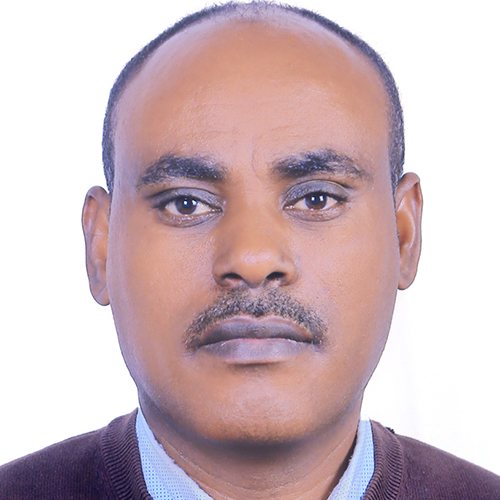
Getachew Tesfaye Beyene
Country (Nationality)
Ethiopia
Grantee Title
Project: Enhancing diagnosis of acute meningitis in meningitis belt resource-limited setting, Ethiopia
Grantee Description
Research area:
Meningitis
Host Organisation & country:
Armauer Hansen Research Institute, Ethiopia
Summary
Meningitis remains a major health concern in Africa because of wrong diagnosis leading to wrong treatment. Dr Getachew’s research is focused on enhancing the diagnosis of acute meningitis through developing resources, and time-saving molecular diagnostic tools that are based on a relatively easy-to-collect blood sample to replace the technically difficult and invasive cerebrospinal fluid sample.
Grantee Description
Dr. Getachew Tesfaye Beyene is an ARISE-PP fellow and researcher in the Bacterial and Viral Diseases Research Directorate of the Armauer Hansen Research Institute (AHRI), Ethiopia. Getachew obtained his Ph.D. in Medicine and Health Sciences from the University of Oslo, Norway in 2017. His doctoral work focused on Meningococcal DNA repair and transformation. He elucidated the link between the Neisserial DNA repair and DNA transformation mechanism and contributed to a novel understanding of meningococcal genome instability and antigenic variation.
Dr. Getachew’s long-standing aspiration is to improve patient management by enhancing diagnostics and surveillance of acute meningitis through developing resources and time-saving molecular diagnostic tools suitable for point-of-care testing and conducting research informing policy decisions to improve human health.
Project: Enhancing diagnosis of acute meningitis in meningitis belt resource-limited setting, Ethiopia
In this meningitis project, Dr Getachew aims to conduct the surveillance of the prevalence of meningitis and address the changing epidemiology of the aetiology of meningitis since the introduction of the vaccine against Neisseria meningitidis serogroups-A. Develop multiplex PCR-based kits for diagnosing bacterial and viral meningitis suitable for local use. Alleviate the need for lumbar puncture by providing evidence for the use of blood instead of cerebrospinal fluid (CSF) for the diagnosis of meningitis. Further Dr. Getachew uses metagenomic and metatranscriptomic approaches to investigate previously unaddressed pathogens of meningitis and resistance gene profiling, and the transcriptional aspects of three central elements of meningitis (pathogens, microbiome, and host) to characterize putative mechanisms by which pathogens manipulate microbiota, and host immune response to facilitate infection, respectively. Dr Getachew also explores new biomarkers with the potential for differential diagnosis of meningitis and putative targets for novel adjunctive therapies using proteomics.
